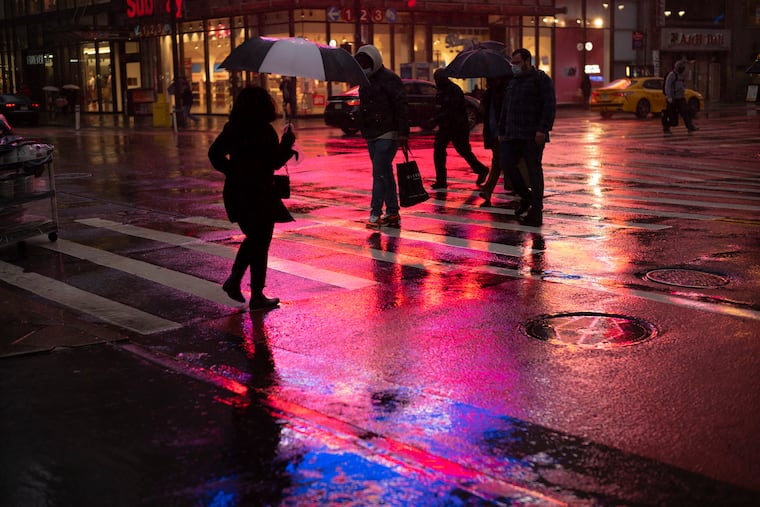Black Friday, Cyber Monday sales disappoint, another sign the economic recovery is stumbling
A number of economic uncertainties, combined with high unemployment and rising covid-19 rates, have put a damper on consumer spending during the all-important shopping period.

Fewer Americans shopped during the entire Black Friday weekend, and those who did spent less than they did a year ago. It’s the latest example of how the pandemic has upended consumer habits and created new challenges for retailers.
Roughly 186 million shoppers purchased something online or in-store from Thanksgiving through Cyber Monday, down from 190 million a year ago, the National Retail Federation said Tuesday. Shoppers spent an average of $312, a 14% drop from $362 in 2019.
The industry group attributed those declines in Black Friday sales to a flurry of early holiday deals that retailers began rolling out in October. But analysts said a number of economic uncertainties, combined with high unemployment and rising COVID-19 rates, have put a damper on consumer spending during the all-important shopping period.
“It’s going to be a tough holiday season for most retailers,” said Paula Rosenblum, managing partner at RSR Research. “Target, Walmart, grocers, and sporting goods stores are cleaning up, but hundreds of thousands of independent retailers have already gone out of business. Things are going to get worse before they get better.”
Nine months into a global pandemic, retailers have already made sweeping changes to their supply chains, store layouts, and online capabilities to adapt to changing consumer demands. Many have introduced curbside pickup options and beefed up their websites and mobile apps.
Black Friday sales also got a makeover, with some of the country’s largest retailers — Amazon, Target and Walmart among them — kicking off discounts in early October. Many chains also closed stores on Thanksgiving and staggered in-store sales over several weeks, in hopes of defusing large crowds. (Jeff Bezos, Amazon’s founder and chief executive, owns the Washington Post.)
The efforts appeared to work: In-store shopping fell 55% on Thanksgiving and 37% on Black Friday, compared to a year ago.
"We knew the pandemic was going to impact in-store foot traffic and we anticipated that consumers would shift some of their shopping behavior online and we certainly saw that," Matthew Shay, chief executive of NRF, said on a call with reporters on Tuesday.
Though e-commerce sales notched new highs, online sales growth was not as pronounced as analysts had expected. Americans spent a record $10.8 billion online on Cyber Monday, up 15% from last year, making it the largest online shopping day in U.S. history, according to Adobe Analytics. The group, which tracks online sales at 80 of the nation’s 100 largest retailers, had forecast growth between 15% and 35%.
On Tuesday, it revised down its online holiday sales forecast by $5 billion, to $184 billion. Last year, by comparison, Americans spent $142 billion online.
The pandemic has widened the divide between the country's largest and most profitable retailers, and the rest of the industry. Analysts say they expect that gap to become even more pronounced during the holiday shopping season, when Americans are more likely to buy from retailers they already frequent.
Amazon on Tuesday said this holiday season was the biggest of its 26-year history. The company did not disclose sales figures, but said the weekend’s big sellers included its new Echo Dot home device, former president Barack Obama’s new book, A Promised Land, and a hair-drying brush from Revlon. Shoppers also loaded up on toys, genetic testing kits, and “cozy comfort” items, the company said.
The retail federation last week projected robust growth in holiday spending — 3.6 to 5.2% compared with the 3.5% average recorded the past five years — because consumers would be buoyed by a record-high stock market and climbing home values. But the coronavirus recession has fueled stubbornly high unemployment, leaving millions of Americans out of work and struggling to put food on the table.
“This is a very bifurcated recovery,” Rosenblum said. “The savings rate is high, but evictions are back on the table and there’s no stimulus money on the horizon. For many people, this is not going to be a pretty Christmas.”